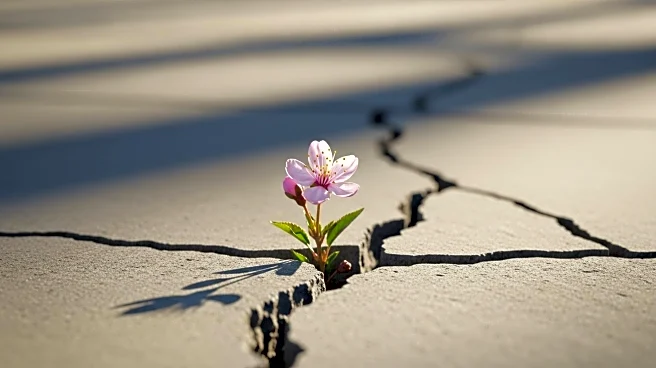What's Happening?
Tallulah Willis, daughter of Bruce Willis and Demi Moore, has publicly shared her journey from self-loathing to self-acceptance. In a recent Instagram post, the 31-year-old actress reflected on the impact of cruel online comments she faced over the years. Willis posted a series of photos alongside her father, highlighting their striking resemblance, which she now views as a gift rather than a flaw. She expressed gratitude for the likeness, which she previously struggled with due to negative comments, including those from gossip blogger Perez Hilton. Willis recounted how the resemblance, particularly her chin, was once a source of pain but has become a cherished aspect of her identity.
Why It's Important?
Willis's story underscores the broader issue of online bullying and its impact on mental health. Her journey to self-acceptance highlights the importance of resilience and the ability to overcome negative perceptions. This narrative is significant as it sheds light on the challenges faced by individuals in the public eye, particularly young women, and the societal pressures to conform to certain beauty standards. Willis's openness may inspire others facing similar struggles to embrace their unique traits and find strength in their individuality.
What's Next?
Willis's public reflection may prompt further discussions on the impact of online bullying and the importance of mental health support. It could lead to increased advocacy for positive online interactions and the development of resources to help individuals cope with cyberbullying. Stakeholders such as mental health professionals, social media platforms, and advocacy groups may take steps to address these issues and promote a healthier online environment.
Beyond the Headlines
Willis's experience highlights the ethical considerations surrounding online commentary and the responsibility of public figures and media personalities in shaping public discourse. It raises questions about the long-term effects of cyberbullying and the role of social media in perpetuating harmful narratives. This development may contribute to a cultural shift towards greater empathy and understanding in online interactions.









